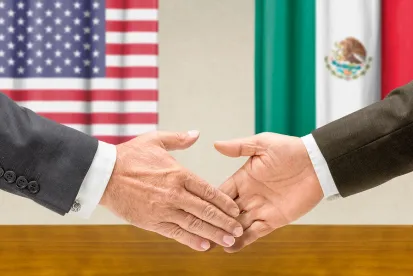While President-Elect Biden supported the Obama Administration’s Trans-Pacific Partnership (TPP) negotiations, he has since said he would renegotiate the Asia-Pacific pact. He views the US-Mexico-Canada Agreement (USMCA) as the gold standard, especially on enforcement, environment, and labor provisions. Any future trade agreements will likely seek to at least achieve these same standards. Rule of law will play a greater role in a Biden Administration’s trade negotiations, especially with a country like Brazil, about which Democratic lawmakers have voiced concerns.
President-Elect Biden’s foreign policy generally leans toward increasing foreign assistance, with a special emphasis on addressing climate change; increasing international cooperation to address mutual concerns, such as COVID-19; and re-establishing relationships and partnerships. With respect to the Western Hemisphere, he believes that Latin America’s prosperity and national security are in the mutual interest of the US. To this end, he supports engaging at the highest levels toward creating mutually beneficial economic and security partnerships.
President-Elect Biden will take office as Latin America continues its fight against COVID-19 and related challenges, along with weakened human rights in the region, security concerns, and declining prosperity. The new US President will not only face immigration problems, but also security challenges with respect to the region. President-Elect Biden is expected to announce an agenda supporting US$1 billion in humanitarian assistance focused on economic development, security, combating corruption, and strengthening rule of law and institutions to stem immigration from the Northern Triangle (Guatemala, El Salvador, and Honduras).
President-Elect Biden will seek to reestablish bilateral – including commercial – relations with Cuba, akin to those restarted by former President Barack Obama and which President Donald Trump reversed while in office. He will also likely continue a policy of sanctioning individuals, including current and former government officials accused of corruption and human rights abuses and in countries like Venezuela and Nicaragua, where Presidential elections are scheduled next year. Overall, he will try to shape his broader Western Hemisphere policy while at the same time addressing individual issues in bilateral relationships across the region.
Mexico-US bilateral relations will likely return to a more comprehensive approach of addressing cross-border infrastructure, security, and immigration concerns. Countries like Mexico and Brazil are critical to US interests. Regardless of whether they agree or disagree with the US, hemispheric supply chains bridge bilateral perspectives on food, security, multilateral cooperation, and climate change priorities.
President-Elect Biden’s climate change agenda is focused on financing tools and technology aimed at strengthening America’s leadership on this topic. He will also use his commercial influence to guide Mexico and national companies to opt for renewable energy and sustainable technologies.
President-Elect Biden has touted, “Colombia is the keystone of US policy in Latin America and the Caribbean.” As an early supporter of Plan Colombia, he will support the Colombian government and the Colombian people in advancing a durable peace.
Under a Biden Administration, countries will find a renewed focus from the US that is less transactional and focuses holistically on security, economic prosperity, and democracy. President-Elect Biden will seek to deepen ties with key allies like Mexico and Colombia; restore diplomatic and commercial ties with Cuba; and seek multilateral approaches for increasing pressure on regimes, such as those in Venezuela and Nicaragua.
US trade policy under President-Elect Biden will shift focus away from transactional relationships, and towards multilateralism – but with the continued aim of defending US economic interests worldwide.




 />i
/>i

